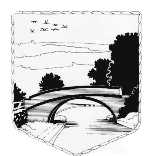Literacy
Children are empowered by developing a lifelong love of the spoken and written word. They are enabled to communicate their creativity, ideas and emotions through the exploration of the richness of literature, and thereby ‘soar on wings like eagles’.
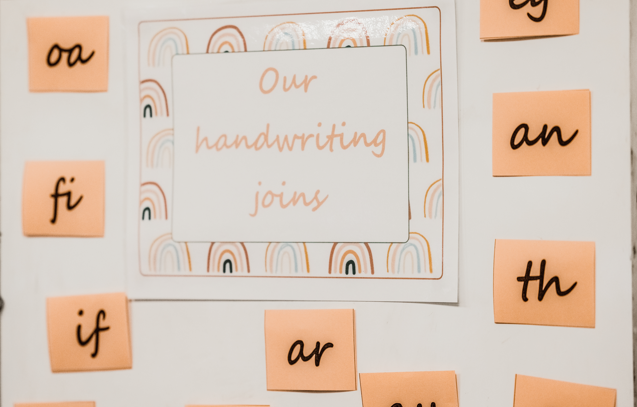
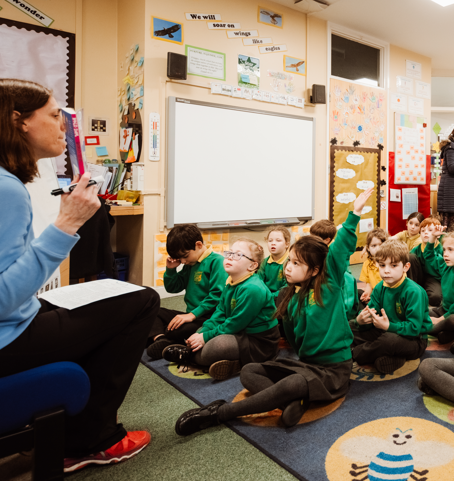
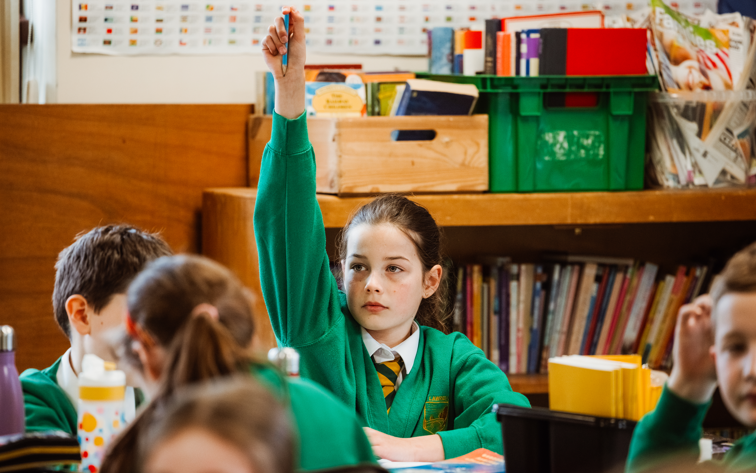
At St Lawrence we use topic-based planning, using a text as a stimulus. This allows wider creative freedom and an enhanced opportunity to focus on the ‘reading for pleasure’ element of the curriculum. One book is chosen for each unit of work, and from this, a variety of writing genres and reading skills are developed.
We sequence our teaching into 6 steps which allow our children to develop a wider range of skills. These are outlined below.
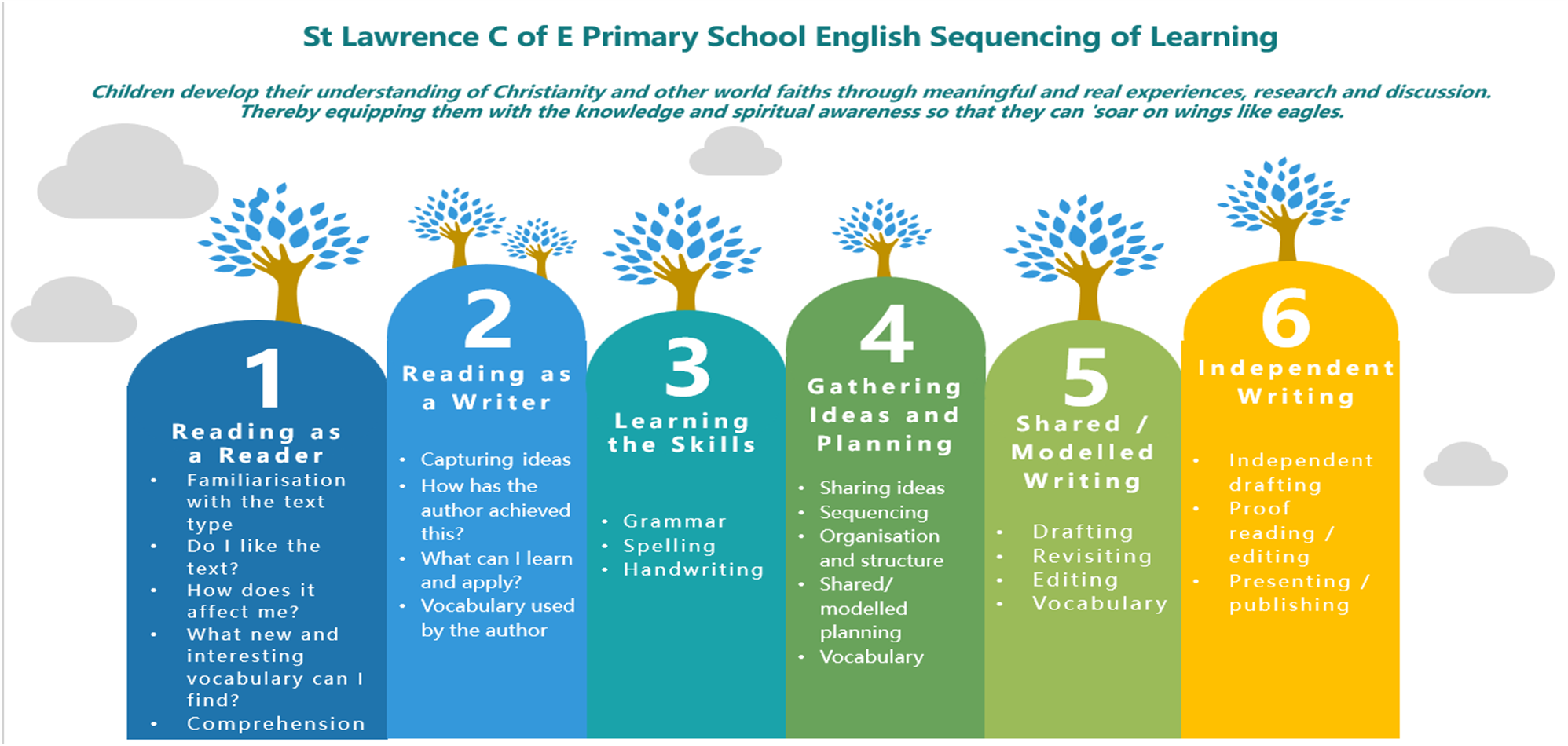
Reading is an essential element of children's educational development. At St Lawrence we aim to develop children's reading fluency as well as a love of literature. We have a well-stocked school library as well as inviting reading areas in each classroom.
How can you help develop your child's reading?
We appreciate parents are busy, but reading at home is one of the best ways to make a difference to your child's progress in all areas of the curriculum.
1. Read a bedtime story to your child.
Read bedtime stories to your child – don’t ask them to read the story themselves as this is often beyond their current reading stage. Listening to you read helps develop their understanding of character voice, tone and expression. It also gives them the chance to ask questions and talk about books that are beyond their reading level.
2. Listen to your child read the books we send home.
In Key Stage 1 and for some children in Key Stage 2 you child will bring home two books. One will be a phonetically decodable book matched to their phonics learning. The other will be a book banded challenge book, based on their reading age/stage. They will be able to read the phonetically decodable book confidently because they have already read it two or three times and will be familiar with the elements of the phonetic code featured in the book. Please do not say “This book is too easy!” Praise your child for how well they read it – celebrate what a great reader they are. They’ll sometimes bring home previous stories they have read too. Re-reading stories develops their fluency, which will feed into all their reading.
Most Key Stage 2 children will bring home a book banded reading book based on their reading age. Reading ages are determined by the Toe by Toe word reading test.
Some Key Stage 2 children will be "Free Readers", meaning that they can choose books from our class and school libraries to bring home to read. We will encourage children to challenge themselves and direct children to alternative text types and styles.
The link below may help you to discover books that your children might enjoy:
http://https://www.thereaderteacher.com/
